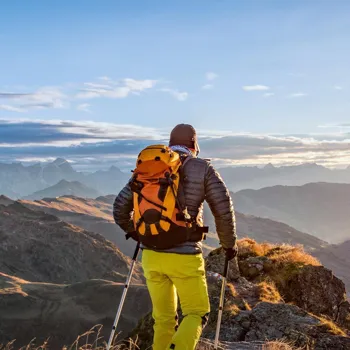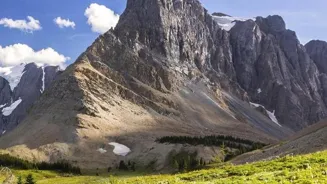Unveiling the Secrets of Remote Travel: Essential Preparations for Unforgettable Adventures! Dive into the vital aspects of planning for a remote journey
Exploring the untouched beauty of remote destinations
in India, from the serene valleys of Arunachal Pradesh to the breathtaking landscapes of Ladakh, is an experience unlike any other. However, these journeys demand careful planning and preparation.
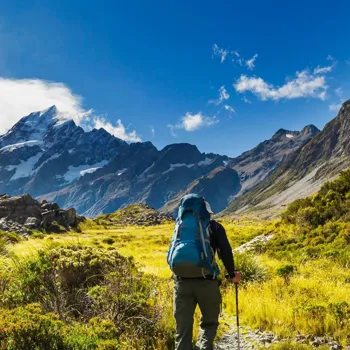
Simply packing your bags won't cut it; thorough research and proactive measures are crucial for a safe and fulfilling adventure. Think of it as preparing for an exam – you wouldn't go in without studying, would you?
Similarly, approaching a remote trip with meticulous preparation will ensure a smoother and more enjoyable experience, allowing you to soak in the beauty without unnecessary stress or complications.
So, before you set off to conquer those hidden gems, let's dive into the essential aspects of preparing for a remote journey.
Prioritize health and safety when planning travel for stunning vistas
Before even dreaming of stunning vistas, your health and safety should be at the forefront of your planning. Begin with a visit to your doctor for a thorough check-up. Discuss your travel plans, especially the altitude, climate, and potential health risks associated with your chosen destination.
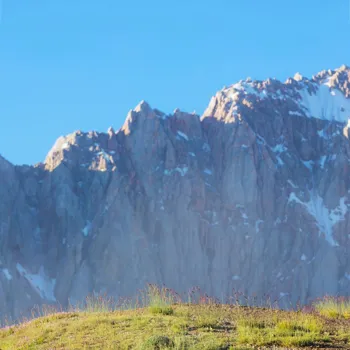
Your doctor can advise on necessary vaccinations and medications. Carry a comprehensive first-aid kit stocked with essentials like antiseptic cream, bandages, pain relievers, anti-diarrheal medicine, and any personal prescriptions you may need.
Consider including altitude sickness medication if you are traveling to mountainous regions. It's always better to be prepared than to be caught off guard. Inform yourself about common ailments specific to the region and learn basic first-aid techniques.
Knowing how to handle minor injuries or illnesses can be invaluable in remote locations where medical assistance might be delayed. Also, remember to pack sunscreen with a high SPF, insect repellent, and hand sanitizer.
These simple items can protect you from sunburn, mosquito bites, and potential infections. And equally important, ensure you have travel insurance that covers medical emergencies, evacuation, and trip cancellations.
Read the fine print carefully to understand the coverage and ensure it aligns with your travel plans and destination.
Plan communication in remote areas with limited network coverage for safety
In the age of smartphones, we often take connectivity for granted. However, remote areas often have limited or no mobile network coverage. This is where planning your communication strategy becomes essential. Research the availability of cell network coverage in your destination.
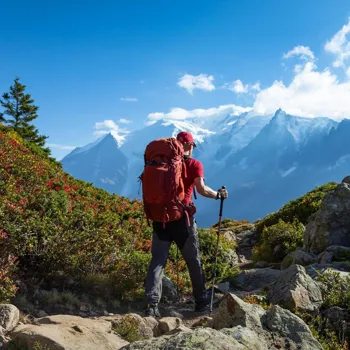
Even if there is some coverage, it might be unreliable. Consider purchasing a local SIM card if you plan to stay connected. In areas with no mobile network, explore alternative communication methods like satellite phones or satellite messengers.
These devices allow you to send and receive messages, track your location, and even call for help in emergencies. While they might be an added expense, they can be a lifesaver in critical situations. inform your family or friends about your itinerary and share your contact information.
Set up a regular check-in schedule so they know you're safe and sound. Before you leave, download offline maps and translation apps on your phone. These can be incredibly helpful for navigation and communication in areas where internet access is limited.
And don't forget to carry a portable power bank to keep your devices charged, especially if you're relying on them for navigation and communication.
Pack light, choose versatile gear for outdoor trips
Packing for a remote trip requires a different approach than packing for a city vacation. Focus on lightweight, versatile items that can serve multiple purposes. Choose clothing made from quick-drying, moisture-wicking fabrics. Pack layers so you can adapt to changing weather conditions.
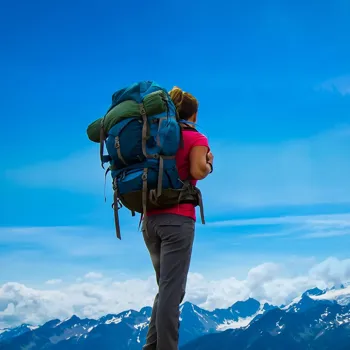
A sturdy backpack is essential for carrying your belongings comfortably. Ensure it's properly fitted and adjustable to distribute weight evenly. Invest in a pair of comfortable and waterproof hiking boots. They'll provide support and protection on uneven terrain.
Don't forget essentials like a headlamp or flashlight, a multipurpose knife, and a water bottle or hydration pack. Depending on your destination, you might also need items like a sleeping bag, a tent, or cooking equipment.
Research the climate and terrain of your destination to determine the appropriate gear. A well-packed bag can make all the difference between a comfortable and miserable trip. Remember, less is often more. Avoid over packing and focus on essential items that will enhance your experience.
Respect local customs when traveling to remote areas
When traveling to remote areas, it's crucial to be mindful and respectful of local customs and traditions. Research the cultural norms of your destination before you go. Learn a few basic phrases in the local language. This shows respect and can help you communicate with locals.
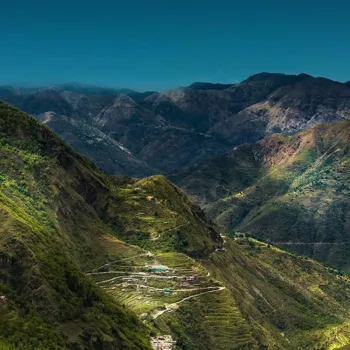
Dress modestly, especially when visiting religious sites. Avoid taking photos of people without their permission. Be aware of local customs regarding personal space and interaction. Show respect for the environment by not littering and minimizing your impact on natural resources.
Support local businesses and communities by purchasing handicrafts and eating at local restaurants. Engage with locals in a friendly and respectful manner. Ask questions, listen to their stories, and learn about their way of life.
By being a responsible traveler, you can contribute to the preservation of local cultures and environments. Remember, these are not tourist destinations but living, breathing communities. Treat them with the respect they deserve.
Research and prepare for travel permits and safety in remote Indian areas
Many remote areas in India require special permits for entry. Research the permit requirements for your chosen destination well in advance. Apply for the necessary permits and carry copies with you at all times. Ensure your passport and visa are valid and up-to-date.
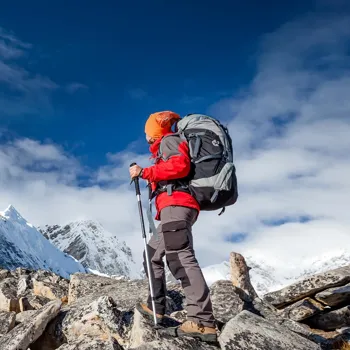
Make copies of your important documents and store them separately from the originals. Email yourself scanned copies so you have access to them even if you lose your physical documents. Carry a small amount of local currency.
While credit cards are becoming more widely accepted, cash is still often preferred in remote areas. Inform yourself about local laws and regulations. Ensure you understand the dos and don'ts of the region. Be aware of any restrictions on photography or entry to certain areas.
It's your responsibility to comply with local laws and regulations. Failure to do so could result in fines or even imprisonment. Don't let paperwork ruin your adventure.
Travel smart: budget, research, save, and be prepared for travel expenses
Traveling to remote destinations can be more expensive than traveling to popular tourist spots. Factor in the cost of transportation, permits, accommodation, food, and activities. Create a detailed budget and track your expenses.
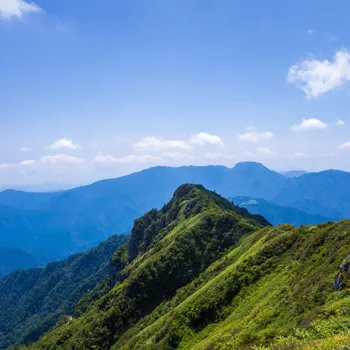
Research the average cost of accommodation, food, and transportation in your chosen destination. Be prepared for unexpected expenses. Carry extra cash in case of emergencies. Inform your bank about your travel plans. This will prevent your credit or debit card from being blocked.
Consider purchasing a travel card that allows you to load money and use it for transactions abroad. Be aware of exchange rates and fees. Take advantage of opportunities to save money. Look for affordable accommodation options, such as guesthouses or homestays.
Eat at local restaurants and try the local cuisine. Negotiate prices when appropriate, but always be fair and respectful. By planning your finances carefully, you can ensure a stress-free and enjoyable trip. Remember to keep some backup money, in case there is an unforeseen situation.
Detailed advice for better remote travel
These paragraphs provide detailed advice that can aid in a better remote travel experience.
